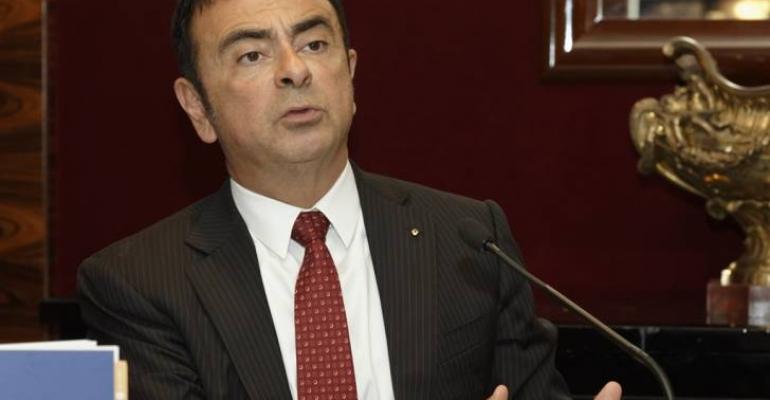FRANKFURT – European automakers launch a new data-protection commitment, pledging to keep the proprietary information of car owners safe as they leverage data-rich intelligent transportation systems (ITS) to tackle tightening carbon-dioxide emissions rules.
“Data protection is something automakers take very seriously,” says Carlos Ghosn, president of the ACEA industry group and chairman and CEO of Renault-Nissan.
The industry’s privacy pledge comes as automakers add sophisticated new technologies to cars and trucks to meet a difficult CO2 emissions target of 95 g/km for their fleets by 2020. A key element of the technology rollout will be the implementation of ITS, which uses data such as driver behavior and location to optimize a vehicle’s efficiency.
A study from the ACEA released alongside Ghosn’s remarks shows a 5%-10% reduction in CO2 emissions from the use of ITS. The technology could alert drivers to changes in their routes, such as a red light soon to turn green or an approaching hill, and adjust their driving accordingly.
So-called “eco-driving” and “green-light optimization” each portend a potential 20% efficiency improvement, according to the ACEA study. Another ITS solution called park-assist, where drivers are alerted to the nearest parking spot, also could slash emissions, says Harmann Meyer, CEO of ERTICO, which produced the study for the ACEA.
“There is a significant potential for CO2 reductions (with) various ITS solutions,” Meyer says.
But the technology requires that cars be connected to each other digitally and to the roadway infrastructure. The exchange of information could leave cars susceptible to hackers, as has been demonstrated recently in both Europe and the U.S.
Ghosn pledges transparency with customers over how automakers will use the data and the choice to opt out of data-sharing.
“We will always take (data) protection into account from the outset, using the principle of privacy rights,” he says during a press conference at the auto show here. “We will maintain data security to protect customer information from unintended uses.”
Automakers also will use the data proportionally, he adds, and will delete the information after it serves its purpose.
Ghosn admits OEM control over the data places a significant new responsibility on automakers relying more and more on third parties for data management, but says it is not unlike other privacy matters the industry confronts every day.
“At the end of the day, we decide who gets access to the car,” he says. “We will make sure this engagement we are taking is respected by all parties. It will be contractual. We have it for our suppliers in many other fields.”
Speaking on the topic of future emissions regulations as European business leaders and regulatory agencies meet in Paris later this year to address pollution in the region, Ghosn appeals for an integrated strategy involving all CO2 emitters. The COP21 meeting will lay the groundwork for transportation emissions rules for 2021 and beyond.
“If you just regulate new cars, it is a wasted effort,” Ghosn says, noting new vehicles comprise just 5% of the European fleet and most cars on the region’s roads are nearly 10 years old. He wants the emissions of all vehicles traced and documented whatever the effort may require, and asks that future regulation consider other global markets where cars are even older and less efficient.
Ghosn stops short of pointing at specific emitters outside of the transportation industry.
“You know them,” he says. “Don’t focus on just the easy stuff, and the easy stuff is new cars.”





